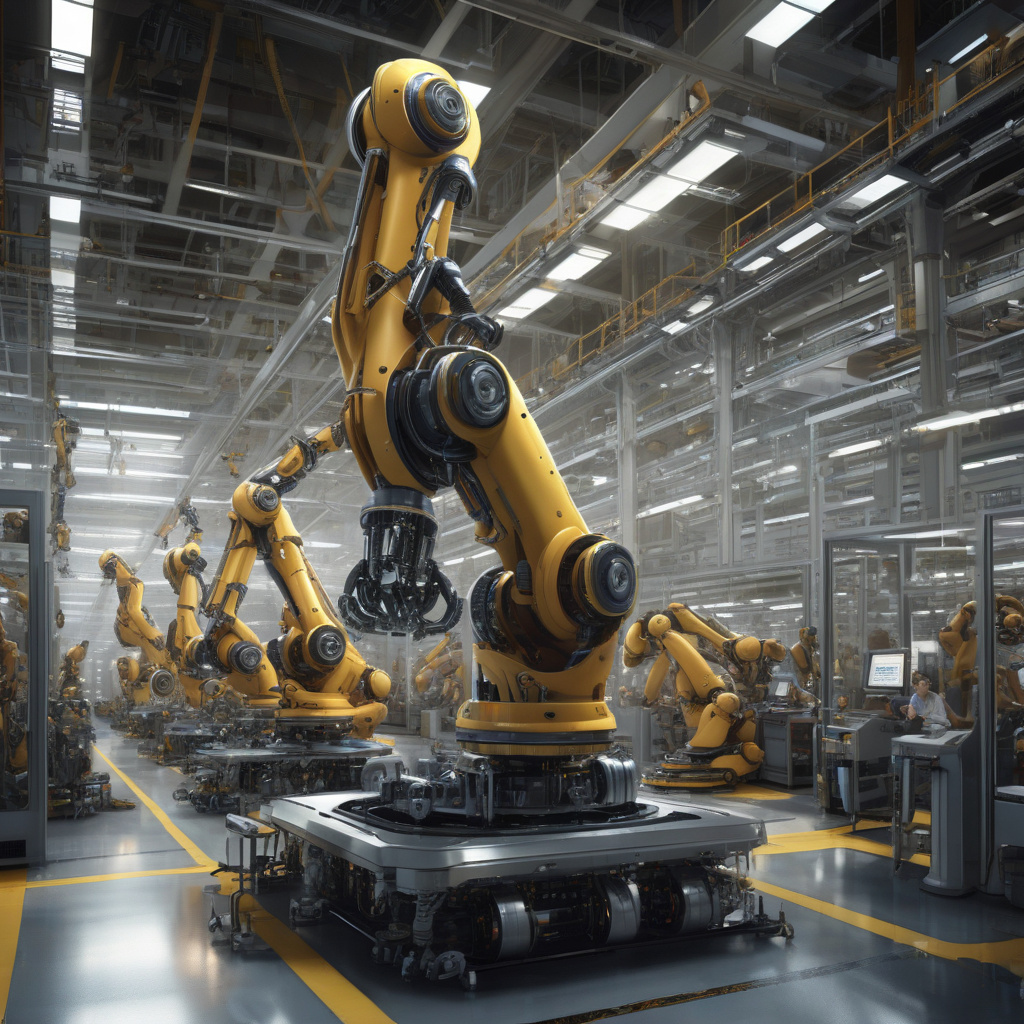AI Revolutionizing Manufacturing: Boosting Productivity by 188%
In today’s fast-paced digital landscape, the integration of artificial intelligence (AI) in manufacturing processes is revolutionizing the industry. According to TeamViewer’s latest report, a staggering 71% of manufacturing leaders anticipate AI to have a significant positive impact on productivity. This transformative technology is projected to increase productivity by a remarkable 188%, showcasing the immense potential AI holds for the manufacturing sector.
The implementation of AI in manufacturing brings forth a plethora of benefits, ranging from enhanced operational efficiency to cost savings and improved decision-making processes. By leveraging AI-powered solutions, manufacturers can optimize production processes, streamline workflows, and ultimately drive greater output with fewer resources. This not only leads to a substantial increase in productivity but also enables companies to meet consumer demands more effectively in today’s competitive market landscape.
One of the key advantages of AI in manufacturing is its ability to analyze vast amounts of data in real-time, providing invaluable insights that facilitate informed decision-making. AI algorithms can identify patterns, predict potential issues, and optimize production schedules to maximize efficiency. This data-driven approach not only enhances productivity but also helps manufacturers preemptively address maintenance issues, minimizing downtime and reducing costs.
Despite the evident benefits of AI in manufacturing, concerns regarding data security remain prevalent among industry leaders. According to the report, 76% of manufacturing executives express apprehensions about data security when adopting AI technologies. This apprehension is understandable, considering the sensitive nature of data within manufacturing operations and the potential risks associated with cyber threats.
To address these concerns and ensure a seamless transition to AI-powered manufacturing, companies must prioritize robust cybersecurity measures. Implementing encryption protocols, access controls, and regular security audits can help safeguard sensitive data and mitigate the risks of cyberattacks. Moreover, investing in employee training programs to enhance cybersecurity awareness and best practices is crucial in building a secure operational environment.
Several leading manufacturing companies have already embraced AI technologies and are reaping the benefits of increased productivity and operational efficiency. For instance, automotive manufacturers are utilizing AI-powered predictive maintenance systems to reduce equipment downtime and optimize production schedules. Similarly, electronics manufacturers are leveraging AI algorithms to enhance quality control processes and detect defects with greater accuracy.
In conclusion, AI is undeniably transforming the manufacturing industry, offering unprecedented opportunities for increased productivity and operational excellence. While concerns about data security persist, proactive measures can be implemented to mitigate risks and ensure a secure transition to AI-powered manufacturing. By harnessing the power of AI technologies, manufacturers can stay ahead of the curve, drive innovation, and meet the evolving demands of the market with agility and efficiency.
AI, Manufacturing, Productivity, DataSecurity, IndustryTransformation
